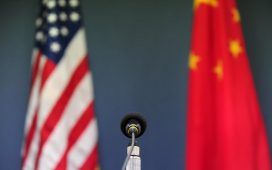
She hiked capital expenditure to Rs 11.11 lakh crore for 2024-25 while trimming the fiscal deficit for this financial year to 5.8 per cent, from the budgeted 5.9 per cent of GDP, and further lowering to 5.1 per cent in the next fiscal.
“In the interim Budget 2024, there is a need to enhance digitalisation of tax return filing-linked procedures such as changing residency status, assessments and even alternative tax return verification systems linked to NRIs,” said Deepak Bhatia, Managing Director at Uncle’s Shop Building Material Trading, Dubai.
Bhatia said that from the infrastructure point of view, the 11.1 per cent higher capex budgeted for infrastructure is lower than what has been the run rate in the previous years.
“This implies the private sector will have to step in if the growth momentum has to be maintained,” he said. However, Sunil Manjarekar, President of GMBF Global, chose to look at the positives, especially the focus on women empowerment through entrepreneurship and the 30-crore Mudra Yojana loan. According to Manjarekar, the focus on a green economy through promoting electric vehicles will support sustainability. “The budget’s focus on tourism will create business opportunities for many Indians,” he said.
Sahitya Chaturvedi, the convener of India Business Professional Council (IBPC) Dubai, said that the interim Budget 2024 is likely a vision statement for Viksit Bharat, a journey from a developing to a developed country by 2047.
“The initiatives towards solarisation, electronic vehicles, green energy, Ayushyaman Bharat, modern farming, post-harvesting activities, Gokul Mission, Matsa Sampada, Lakhpati Didi, rural and mid-scale housing are excellent initiatives to make the economy larger than 5 trillion US dollars,” he said.
According to him, the metaphors used in Budget are attractive yet the reality of social economic challenges is also critical as evidenced by the big gap and change in expected revenue and budgeted expenditures, leading to the continual deficit.
“Reduction in Corporate Tax is applauded but a comprehensive review of conditions is holding my opinion. Also, no change in tax rates is a status quo,” said Chaturvedi.
Chandra Shekhar Bhatia, Chairman of GBF Middle East, said the budget widely covers the segments of society and industry from agriculture to aquaculture.
“The stock market index is increasing which suggests the public is accepting it,” he said.
However, Bhatia said that the absence of a reduction in tax reliefs to individual taxpayers “is hard to accept.”
Rashid Ahamed, an NRI working in the private sector in Abu Dhabi, said that as an NRI, observing the strides India takes with each budget is inspiring.
“This year’s Interim Union Budget stands out for its forward-looking approach and commitment to development and inclusivity. It paves a clear path for sustainable growth, emphasizing technology, healthcare, and education, which are crucial for long-term development,” he said.
Ahamed lauded the focus on infrastructure and digital advancement as commendable.
“It is promising not only to enhance the quality of life within India but also to elevate its stature on the global stage,” said Ahamed.
(You can now subscribe to our Economic Times WhatsApp channel)











